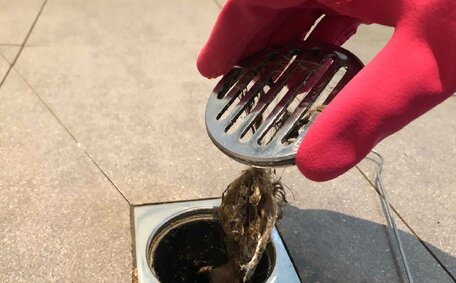How Instant Hot Water Systems Work and Key Benefits
Tankless or on-demand hot water systems deliver immediate hot water without a storage tank, offering simplicity and efficiency. Instead, these systems use a heat exchanger that rapidly heats water on demand, ensuring efficiency and convenience. This system removes the delay linked with reheating water, a common issue with traditional tanks.
Compared to traditional tank hot water heaters, tankless systems offer numerous advantages in terms of efficiency including:
- They save space by eliminating the need for bulky tank heaters.
- Homes using under 155 litres of hot water daily could see up to 34% in energy savings from reduced storage heat loss.
- Reduced tank water wastage as there’s no water tank to store and heat up water, only heating it as needed
- Continuous flow water delivery ensures a consistent supply, eliminating the possibility of running out of hot water.
- Higher flow rates than conventional systems to supply multiple taps simultaneously
- Long lifespan, with some gas models lasting over 20 years
Despite the higher initial cost, the long-term savings potential of tankless hot water systems balances out, offering both efficiency and convenience.
Energy Efficiency and Cost Savings of Tankless Water Heaters
Tankless demand water heaters are an energy saver as they precisely heat water on demand, eliminating standby heat losses associated with traditional storage systems. The compact design of these systems facilitates more efficient heating by maintaining water flow, thus reducing heat loss across the surface.
Well-designed gas hot water systems, known for over 20-year lifespans, offer substantial long-term energy savings. Models, eclipsing conventional water heaters and engineered for numerous litres hot water per minute, enable more taps to run concurrently while maintaining performance.
Households with substantial hot water requirements may find tankless systems more cost-effective due to their superior efficiency. At 9 cents per kWh and $1.50 per therm of gas, savings per year range from $80-$150 for electric and $30-$60 for gas heaters.
Additional savings can be achieved by operating electric tankless systems during solar or off-peak power times. Although with a higher initial expense, gas tankless water heaters can recoup their costs in 3-5 years via energy efficiency.
Comparing Upfront and Installation Costs
When considering upfront costs, tankless water heaters, whether gas or electric variations, typically range from $600-$3,000 depending on the fuel type, flow rate, and water when it’s needed. This is higher than the $200-$1,000 range for comparable traditional electric storage water heaters. Nonetheless, the installation expense often represents the most significant cost.
A basic retrofit connecting the tankless unit to existing pipes often costs $500-$800. Complex installations replacing a tank water heater involving upgraded gas lines, electrical systems, and ventilation can total $2,000-$4,500 or more. Traditional tank systems seldom incur these additional installation costs.
Given the relatively high purchase and installation costs, an instant hot water system with continuous flow returns its investment through energy savings in 3-5 years, proving it a viable long-term investment. Consider the upfront costs against the expected energy bill savings over the system’s lifespan of over 20 years.
Choosing the Right Instant Hot Water System
Key factors to consider when selecting an instant hot water system include:
Household Size and Hot Water Usage
Estimate your daily hot water usage and consider peak times when multiple outlets are used at the same time.
A gas water heater tailored for your household needs is available in various flow rates from 2-10 GPM. Households of 1-2 people can opt for a point-of-use 6-7 GPM unit at the kitchen sink. Larger households should install a whole house system rated at 8-10 GPM.
Fuel Type
While electric hot powers most small point-of-use heaters, a whole house gas hot water system rated for higher litres of hot water per minute is more suitable with natural gas or propane, unless gas lines are absent. Outdoor installations also favour gas models.
Climate Considerations
Higher gallons per minute (GPM) are necessary in colder regions for warming baths and showers. Make sure outdoor units are built to resist freezing temperatures and include anti-frost features. Consider a solar hot water system with pre-heating tanks to enhance efficiency.
Efficiency Ratings
Choose units with a high energy rating, like ENERGY STAR certified heaters with heat pump hot water capabilities and higher energy factors for gas or electric models, ensuring efficient heating even of cold water. Higher ratings directly correlate to better fuel efficiency.
A thorough consideration of these factors helps choose the right size and fuel type for your instant hot water system, ensuring optimal convenience and efficiency.
Lowering Energy Bills and Environmental Impact
The on-demand operation of tankless systems reduces energy usage compared to traditional water heaters, which constantly work to maintain hot water temperatures. This equates to lower greenhouse gas emissions from reduced fossil fuel consumption.
Homes employing electric hot water systems and using less than 41 gallons of hot water per day can achieve 24-34% heightened efficiency. At average energy rates, this equates to annual savings of approximately $110-$210 for electric models and $40-$85 for gas water heaters.
Additional environmental benefits are gleaned from learning more about 'How long do tankless heaters last?' with the response highlighting the 20+ year lifespan of premium units, ensuring sustainability of your water heater over time. Avoiding replacement waste over decades is a sustainable choice. Annual flushing maintenance also helps efficiency, especially in hard water areas.
Operating the system during solar generation or off-peak hours further cuts operating costs. Paired with PV solar electrical systems, net energy costs can drastically reduce for some households.
It’s crucial to size your system based on typical household water use to avoid inefficiency during peak demand. Right-sized systems maintain optimal efficiency under normal loads.
Energy conservation aside, instant tankless water heaters supply endless hot water, avoiding the need to curtail shower times or other uses. Convenience and savings align in harmony.
The cost-effective nature of an efficient system not only lowers energy bills but also facilitates budgeting for eco-friendly home improvements. Compounding environmental savings sequentially turbocharge your homes sustainability.
With high upfront costs offset by energy savings in the medium term and low operational costs over 20+ years, instant tankless water heaters save significantly, thus lowering home energy bills while shrinking your carbon footprint.
Professional Installation Guidelines
Due to the technical complexity involved, it’s strongly recommended to have a licensed plumber professionally install the system. Incorrect installation might result in energy inefficiencies, capacity problems with simultaneous tap use, and it could invalidate warranties.
Key aspects plumbers handle in the installation process include:
- Selecting the optimal location considering ventilation needs
- Upgrading gas lines and electrical wiring if required
- Modifying existing plumbing
- Installing new vents and condenser units
- Connecting the system to water and power supplies
- Programming and setting the digital temperature controls
- Testing and commissioning the unit
- Completing all compliance paperwork required by Australian standards
Utilising local Sydney plumbers provides residents with warranties and ongoing maintenance, ensuring system durability and dependability. This ensures your tankless system, an alternative to air conditioning for heating needs, runs efficiently for its 20+ year lifespan.
While costing more upfront, a professionally installed, fully compliant tankless water heater geared for heating water avoids issues down the track and provides maximum convenience, efficiency and savings.
Ongoing Maintenance for Optimal Performance
Create an annual maintenance plan to maintain peak performance throughout your system’s lifespan of more than 20 years. Annual flushing of the heat exchanger is advisable in hard water regions to prevent sediment-related efficiency losses. With professional yearly servicing, including pilot light checks, your system will keep safety standards updated, maximise energy savings through maintained efficiency and provide ongoing convenient access to continuous hot water on demand.
A licensed plumber should conduct annual inspections to promptly identify and resolve any issues, such as scale accumulation in the pipes. Following the manufacturer’s care guidelines on ventilation filter cleaning and replacement is also advised.





